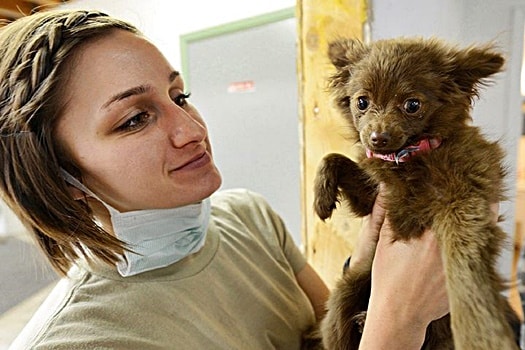What comes to mind when you think of a meaningful career? Perhaps you picture a world-class surgeon or a devoted nurse. These careers are certainly fulfilling, but you don’t have to be a doctor or a nurse to make a lasting impact on this world.
If you’re uninspired by these conventional career paths, don’t give up hope of finding a meaningful career. Perhaps it’s just time to widen your job search. In this guide, we’ll reveal some of the less conventional careers that can genuinely make a difference in people’s lives.
[su_list icon=”icon: check” icon_color=”#2193c4]
How Do You Want to Help the World?
First and foremost, try to establish how you want to help the world. If you’re reading this article, you’re probably thinking something along the lines of: “I want to find a job that helps people.” This is a great ambition to have, but it’s not very specific. How do you want to help people? If you’re not specific about your goals, you risk losing focus.
In her influential Ted Talk, Laura Fortgang argues that – It’s not what you do in your career; it’s who you become while you are doing it. In other words, the impact you make in your career is more important than any other factor. So, try to choose a career that allows you to become the change you want to see in the world. Not sure what difference you want to make? If you’re unsure, ask yourself:
If I could solve one problem in the world, what would it be?
Why is this so important to me?
Once you can define the impact you’re hoping to make, it will be easier to focus your job search. What’s more, if you can define your reasons for wanting to act, you’re more likely to stick with your goal because you’ll understand why it’s so important to you.
What Impact Will You Make?
The impact we choose to make on the world is mostly influenced by our past experiences. The communities we grow up in, the relationships we have, and the challenges we face will all shape our ambitions.
For example, people who have hit rock bottom due to drug addiction will often try to help other addicts once they’ve recovered. Similarly, people who have suffered some form of injustice are often inspired to promote social justice later in their lives. Sometimes, these people become activists for social problems that are entirely unrelated to the injustices they suffered themselves.
For the most part, ethical careers can allow you to create a positive impact in the following areas:
- Physical health and disease prevention
- Mental health and wellness
- Poverty alleviation
- Animal care and protection
- Disaster relief
- Security and protection
- Education and rehabilitation
- Protecting the planet’s natural resources
- Promoting spiritual awareness
- Bringing joy to others
- Eradicating social injustice
- Promoting positive global relationships
Most social-impact careers would fall under one of these categories, but there are bound to be others, too. Are any of these causes close to your heart? Perhaps you’re drawn to one or two on this list.
As mentioned, try to be specific when you’re looking for a new career. Even if you’re not sure exactly what job you want to do, try to decide what social or environmental concern you’re inspired to work for. Once you’ve decided this, you can start building a strong and relevant resume. For example, if you know you want to help the environment, start volunteering for an environmental charity today so that you can have a resume to be proud of tomorrow.
Some Myths About Social-Impact Careers
Perhaps you like the idea of a social-impact career, but you’re not sure whether you’re the right “type” of person to do this work? Contrary to what you might think, it’s not just free-spirited hippies or wealthy do-gooders who are suited to ethical jobs. Let’s clear up some of the myths regarding social-impact careers.
- You need a degree – As mentioned, when we think of impactful careers, we think of doctors, nurses, teachers – and other ‘degree professions.’ There are plenty of meaningful careers that you can do without a degree – as we will explore. What’s more, even when a degree is required, “soft skills” will be your most valuable asset if you want a job helping people.
- They don’t pay enough – As with most sectors, there are social-impact jobs that pay very little and social-impact jobs that pay a lot. Because there are a lot of volunteers in this sector, this has led people to assume that all social-impact work is unpaid or underpaid. As we’ll explore – there are plenty of well-paid and meaningful careers.
- These jobs are only for do-gooders – Ironically, some people think they are not moral enough to work in a social-impact career. As long as you’re working in a job that’s aligned with your moral values, this is not an issue. For example, let’s assume you’re a meat eater who eats ethically-sourced meat and you care about animal welfare. There’d be no issues with you working as a vet’s assistant or an ethical farmer – but you probably wouldn’t choose to work for a vegan charity. This is why it’s important to consider the impact you want to make (i.e., what you’re passionate about and why) so you can find a career that’s truly aligned with your values.
- You’ll burn out after a few years – Social care work is stressful, but is burnout an inevitability? According to a study by JSTOR, having an altruistic career doesn’t make you more prone to emotional exhaustion, as long as you have the right support from your employer and your family. Also, don’t forget how rewarding a social-impact career can be. This sense of satisfaction can help to alleviate burnout in many cases.
So, if these myths have been putting you off pursuing a meaningful career, don’t let them hold you back any longer. Below, we’ll discuss 25 worthwhile jobs that can help you make a difference. Remember, keep your goals, aspirations, and values in mind when reviewing this list and see if anything catches your eye.

Careers that Involve Helping People
First and foremost, we are social creatures. When we think about making a positive impact on the world, many of us are drawn towards helping other people. If you can relate to this, you’d probably enjoy working in a social care, rehab, or healthcare setting.
In most cases, you’ll help other people to overcome barriers. These barriers could be physical, psychological – or a combination of the two. People who thrive in these careers are patient and compassionate but also resilient and assertive. Do this sound like you? Consider the following options:
1) Correctional Treatment Specialist
Do you believe that everyone deserves a second chance? Are you patient and willing to mentor others? As a correctional treatment specialist, you’d help to rehabilitate soon-to-be-released prisoners.
In essence, you’d bridge the gap between prison services and social services. In this role, you could help inmates turn their lives around by helping them to secure employment, housing, or education when they are released.
The rewards from this job are potentially huge, but it’s a demanding and responsible job. As well as being compassionate, you’d need to be very observant. Part of your role will be to observe inmates – interview them – and determine whether they should be released on parole or probation. As such, you’ll need to concentrate and make nuanced decisions based on all the information available to you. You could expect to earn around $51,410 per year as a correctional treatment specialist.
How easy is it to enter this career? You’ll typically need a bachelor’s degree in social work, psychology, criminology or a related subject. If you think this career is only suited to men, think again. According to an interview on Mater Mea, this career can be very rewarding for women, too. The lady in this article talks candidly about her reasons for becoming a correctional officer, and it’s evident that she’s chosen a career that fulfills her desire to help others.
2) Youth Development Coordinator
Do you enjoy being around young people? Do you enjoy inspiring and mentoring others? If so, consider a career in youth development. As a youth development coordinator, you might work in a school, shelter, or outreach setting. You would design activities to help young people develop important life skills. For example, you might organize sports clubs, social events or parenting classes.
Indeed, you’ll often work with the whole family to ensure the young person is getting all the support they need. According to a recent report, some of the issues facing young people in the US today include obesity, excessive materialism, bullying (particularly via social media), single-parent households, and drug abuse in the household. If you chose to work or volunteer overseas, there might be different issues to contend with.
So, how can you become a youth development coordinator? Some people have a bachelors degree when entering this career, but it is not always a requirement. Often, an associate’s degree or some relevant work/voluntary experience is acceptable. Quite often, this work can be done on a job share/part-time basis, so it may be particularly suitable for moms.
3) Phlebotomist
Can you calmly take charge of a situation while putting others at ease? If so, you could make a great phlebotomist. Around 10% of the population have Trypanophobia (an intense fear of needles). In some cases, this fear stops people from seeking out medical care. Diligent and caring phlebotomists can help put nervous patients at ease, so they’re less likely to avoid doctors in the future.
What’s more, phlebotomists take a very active role in saving thousands of people’s lives. This is because they help people to donate blood. According to Giving Blood, less than 10% of the US population give blood, even though almost 40% are eligible to do so.
This means that during summer and winter holidays, there are shortages of certain blood groups in the blood banks. As a phlebotomist, you could encourage donors to keep returning by making sure the blood drawing process is as pleasant as it can be. Also, some phlebotomists are involved in raising awareness around blood donation.
4) Homeless Services Worker
According to the US Department of Housing and Urban Development, there were approximately 554,000 homeless people across America in 2017. Although the national poverty rate has decreased over the last decade, homelessness has risen. This is partly because housing in some areas is becoming unaffordable. In some parts of the country, full-time low-income workers are unable to afford suitable housing.
Many homeless people are ashamed to ask for help despite the fact they are in desperate need of assistance. If you’re someone who can be openly non-judgmental and build rapport with people from all walks of life, this could be a great career for you. As a homeless services worker, you might distribute supplies, put people in contact with agencies, or help to run a night shelter. You won’t earn a lot doing this job, but the rewards are potentially massive.
What’s more, if you’re looking for a career in social care without a degree – it shouldn’t be too difficult to find a job in homeless services if you have the right “soft skills” for this role.
5) Physical Therapist
Are you passionate about physical health? Physical therapists help people to get back on their feet after an injury. They also work with people who have long-term, chronic illnesses. If you work in this career, you can help give the gifts of freedom, independence, and dignity to your patients.
To become a physical therapist, you’ll need to study for a doctorate or professional masters. However, you don’t need a degree to become a physical therapist assistant or aide. As an aide, you could expect to earn between $22,000 and $31,000 per year.
6) Cognitive Behavioral Therapist
According to APA, cognitive behavioral therapy (CBT) is one of the most effective treatments for anxiety, depression, phobias, and eating disorders. So, if you want to help others overcome mental illness, why not train to become a CBT therapist?
Cognitive behavioral therapy is a short, goal-focused treatment that aims to get to the heart of the patient’s problem quickly. So, if you’re a compassionate and pragmatic person, you’ll probably get a lot of satisfaction out of a career like this. As a therapist, you could help people make positive changes in their lives in just a couple of weeks.
Jobs that Protect People
When choosing a social-impact career, some people are motivated by a desire to protect others. Careers in the police, the military, or children’s services probably come to mind when you think about jobs that protect people. However, if these jobs don’t appeal to you, here are some alternative options:
7) Computer Security Specialist
Are you tech savvy? If you have a bachelors degree in computer science or a related subject, you could train to be a computer security specialist. In this role, you’d implement strategies to help protect people’s data.
In the case of a security threat, you’d need to be able to keep your cool and make decisions effectively. Unfortunately, malware attacks have increased in recent years as hackers have developed more sophisticated infiltration techniques. IT specialists are extremely employable and will continue to be sought after over the coming decades. Cybersecurity specialists earn in the region of $95,000 – $150,000 per year.
8) Fire Inspector
As an inspector, you’d visit local businesses, offices, and schools to check that the environment is free of fire hazards. Ultimately, you’ll make sure members of the public aren’t needlessly injured in a fire.
As a fire inspector, you’ll be working within strict frameworks and guidelines, so you’ll need to be a detail-oriented person. You do not need a degree to become a fire inspector, though you will require several years of work experience in fire safety or compliance. The earning potential is good at around $60,000 per year.
9) Police, Fire, and Ambulance Dispatcher
Are you a calm and compassionate person who has advanced-level communication skills? If so, you could enjoy working as a dispatcher for the emergency services.
As a dispatcher, you’ll make sure members of the public receive the appropriate help as quickly as possible. Your ability to relay information effectively could affect the outcome of the emergency, so you’ll need to be able to communicate clearly under pressure. In many cases, you’ll stay on the line with your caller until the emergency services arrive, so you’ll provide emotional support during a crisis.
If you decide to pursue this career, you’ll receive lots of on-the-job training. Most people enter this career with a high school diploma or some college education. Once you’re experienced in your role, you can expect to earn around $40,000 per year.
Jobs that Help Animals
Do you find yourself drawn towards helping animals? Some people who want to make the world a better place choose to help animals because animals don’t have a voice. Some research suggests that there may be a genetic basis for wanting to help animals. This may explain why some people are very motivated to protect animals whereas others have very little interest in doing so.

So, if you’re an animal lover, here are just a few career options:
10) Veterinary Assistant
Are you organized, energetic, and do you love being around animals? Being a vet’s assistant is a fast-paced, exciting job that is perfect for animal lovers. On a standard day, you’d be cleaning cages, caring for animals, sterilizing equipment, and administering medication. You’d also be dealing with animals’ owners, so you’ll need to have good customer service skills.
According to Careeeronestop, around a quarter of veterinary assistants enter this career without a bachelor’s degree. Many of the skills are learned on the job, so you don’t necessarily need a degree or a lengthy work history to do this job.
11) Vegan or Vegetarian Chef
In the last four years alone, the vegan population has grown by 600% in America. Also, lots of people are opting to become vegetarian or flexitarian (eating meat only occasionally). As a result, there is a growing demand for great tasting vegan/vegetarian food.
If you want to become a chef and you’re passionate about caring for animals – this could be the perfect career for you. By creating tasty vegan/vegetarian dishes, you might even persuade meat eaters to cut down on their consumption of meat.
12) Work for an Animal Charity
If you’re already working in finance, administration, customer service, or marketing – but you’re looking to find a more meaningful career – why not apply to work for an animal charity instead? Animal charities need admin people and accountants, too. Having said that, the charity will want to see evidence that you’re committed to animal protection. So, be sure to highlight any relevant voluntary experience on your resume.
Jobs that Bring Joy to Others
When we think about jobs that make a difference in people’s lives, we tend to think of healthcare workers or human right activists. However, putting a smile on someone’s face can help to make a difference in their life.
If you want to spread joy to others, consider the following career options:
3hers to spread this message of joy, appreciation, or regret. Needless to say, you’ll need to be creative, and have a good eye for color to work as a florist. On average, florists earn between $20,000 and $30,000 per year.
14) Wedding Videographer
If you enjoy videography and editing, why not train to become a wedding videographer? Wedding films are cherished by couples because they help to keep precious memories alive. Through clever editing, videographers can create powerful and emotive videos that spread joy every time they are watched.
If you enter this field, you need to be prepared to work weekends and travel quite a bit. Having said that, you’ll shoot videos in beautiful locations, and you’ll be surrounded by lots of joyful people, so it’s not all that bad.
15) Cosmetologist
As a cosmetologist, you’ll help people to look and feel their best. Not only that, you’ll help them to relax and unwind. Although you won’t be “helping” them in the same way a doctor might, you’ll have a positive impact on their overall wellbeing.
Jobs that Help the Environment
According to the Pew Research Center, 55% of Americans believe the government could be doing more to address environmental issues. If you believe this to be the case, perhaps you’d thrive in one of these eco-conscious careers.
16) Solar Photovoltaic Technician
According to Worldwatch, Americans account for 4.5% of the world’s population but consume about 25% of the world’s fossil fuel resources. As such, renewable energy can only be a good thing.
If you’re a hands-on person looking for an active job, you might enjoy working as a solar photovoltaic technician. In this role, you’d assemble, install, and maintain solar photovoltaic systems – mostly on roofs. You might also carry out compliance checks.
As you might expect, this industry is growing at an extremely fast rate, so it can offer workers a very bright future. You don’t need a degree to enter this field, and you can expect to earn around $40,000 per year.
17) Green Interior Designer
If you have an eye for good design and you’d like to help protect the planet, why not become an eco-friendly interior designer? When designing a ‘green’ interior, you’d consider:
- Energy efficiency
- Water efficiency
- Choose low impact or recycled materials
- Indoor air quality
- Land disturbance
Most designers have a bachelor’s degree in a relevant subject. Interior design can be a very competitive sector to enter, but if you’re passionate about your job, you can build up your reputation slowly. Eco-friendly interiors are becoming trendier by the second. So, if you specialize in this area, you’re more likely to be in-demand.
18) Park Naturalist
Do you want to encourage other people to enjoy the great outdoors? If so, why not become a park naturalist? In this role, you’d work for a national, state, or local park. You’d help to inform visitors about the natural and historical features of the park. This can help increase tourism but also encourage people to take more care of the environment.
To be a park naturalist, you’ll need to have completed a bachelors degree in a relevant subject. According to the Bureau of Labor Statistics, you could expect to earn around $61,480 per year.
19) Environmental Technician
As an environmental technician, you’d work under the direction of engineers or scientists to test and remedy environmental problems. You might be involved in waste treatment, for example. As you might expect, there will be lots of new vacancies in this sector over the coming decades. Most people entering this career have at least an associate’s degree, and you could expect to earn around $50,000 per year.
Jobs that Promote Social Justice
Are you bothered by social inequality? Perhaps discrimination is one of the most hateful things you can imagine? If so, many careers can help you make a positive social impact.
20) Teacher
In this role, you could teach children about equality and respect for others. Not only that, if you chose to work in a less affluent school with few resources, you could help to inspire underprivileged children to reach their full potential. In your role, you could encourage young people to recognize and nurture their skills and talents, so they feel more motivated about their future.
As a teacher, you’d also have the power to campaign about racial, social, and economic justice in public education.
21) Lawyer
If you were to specialize in human rights law, you could help your clients achieve equality and justice. You’ll need to be persuasive, detail-oriented, and assertive to thrive in this role. It takes many years of study to become a lawyer, but less to become a paralegal or work in a law firm.
22) Artist
When art is clever, it can be more powerful than words. Many artists consider themselves to be social activists. Just take a look at these powerful artworks on Mashable. Granted, not everyone makes it big in the art world, but if it is something you are passionate about, start creating artworks in your spare time and see where it takes you.
23) Watchdog Journalist
Watchdog journalists investigate and report on important issues that affect the public. In a way, watchdog journalists are “moral guardians” for the reader, because they unearth cases of fraud, collusion, discrimination, injustice and so on.
To deliver these groundbreaking and shocking news reports, a reasonably big budget is usually required. So, if you want to get experience in this area, you should try to work for a large newspaper or news station.
24) Urban Planner
According to Learn How to Become, urban planners can play an important role in reducing poverty. As an urban planner, you’d balance the needs of everyone in a particular community, so that everyone has the opportunity to thrive.
You’d decide how much space is allotted to commercial buildings, how much to local residents, and how much to green spaces. You’d use your professional skills to design places that are safe, comfortable, and which promote a healthy lifestyle for residents and visitors alike.
This occupation is growing at a rate much faster than average, so there will be plenty of new job openings over the coming years. According to the Bureau of Labor Statistics, urban planners earn between $70,000 and $140,000 per year.
25) Victim Advocate
As a victim advocate, you’d help victims navigate their way through the justice system. This might involve:
- Telling them about their rights and protections
- Telling them what to expect
- Listening to their worries and providing support
- Safety planning
- Finding shelter and transportation
- Notifying them if the perpetrator is due for release
Victim advocates also tend to work with other agencies such as social services, the police, the courts, and charities, to make sure the victim receives relevant updates and feels supported. Most people entering this career will have an associate’s degree in psychology, criminology, social work or a similar subject.

How to Manage Stress in a Social-Impact Career
Burnout is not inevitable, but social-impact careers can be more stressful than regular careers. If you work in social care or healthcare, you’ll see trauma and suffering on a regular basis. Undoubtedly, this will have an impact on your emotions and could make it harder to relax outside of work. Nevertheless, there are ways you can manage stress effectively. For example:
- Be Realistic – Some social workers start doubting themselves when they don’t seem to be making a positive impact on a client. It’s important to remember that you won’t be able to make a big difference in everyone’s lives. Even when you think you’ve made no impact, you might have helped someone a lot. So, don’t put unrealistic demands on yourself and recognize that you’re doing your best.
- Recognize your Achievements – This point follows on from the last. Keep a journal and write down your achievements, no matter how big or small. Look back over your journal when you start to doubt yourself.
- Create Balance in your Life – Try to nurture a hobby, interest, or relationship that is completely unrelated to your work. This will help you develop other aspects of your identity, and help you relax during your leisure time.
- Ask for More Support – If you feel under-supported at work, don’t be afraid to ask your manager for more support. Perhaps you’d benefit from more training or more support from your colleagues. Once you speak up, you might find that other workers in your organization feel the same.
- Look After your Health – When we get immersed in our work, we sometimes neglect our health. Try to prioritize your health because this will have a positive impact on your efficiency at work. Take the time to prepare healthy meals and make sure you’re doing a bit of exercise each day.
- Take Regular Breaks – This is probably easier said than done but it is important for people in stressful jobs to take regular breaks. Some people in social-impact careers negotiate part-time hours because it allows them to do the job they love without becoming too stressed. If part-time hours would work for you, this is something to consider.
Other Ways to Create an Impact
Has this article inspired you to do something positive? What if you’re not quite ready to change your career yet? If you want to start making a small difference today, there are many ways you can create a positive impact in your community. For example:
- Reduce, Reuse, and then Recycle – Although recycling is a great thing, try to reduce and reuse products as much as possible first. If you want to help the planet in your day-to-day life, check out these tips from TreeHugger.
- Make your Own Compost – Don’t put veg peelings, tea bags, and coffee grounds in the bin. Compost them and use them in your garden instead.
- Give Blood – As mentioned, there is often a shortage of blood during certain times of the year. Not sure if you’re eligible? Take a look at this guidance from the Red Cross.
- Volunteer –Start volunteering for a cause that’s close to your heart today, and you’ll become much more employable in that sector within a year or two.
- Employer Gift Matching – Some employers will match the amount you donate to a charity, so check with your HR department to see if they offer this.
- Raise Awareness/Activism – Want the world to go vegan? Want the government to treat asylum seekers with more compassion? If you’re passionate about something, start spreading the word today. Find a charity that’s dedicated to this issue and join their mailing list, so you can stay up-to-date with their campaigns. Activism can be done online as well as in-person, so it needn’t take up too much of your time.
- Foster or Adopt an Unwanted Animal – If you love animals and you have the time and space to look after one, consider adopting a pet from an animal shelter.
Taking the Next Step Towards a Meaningful Career
Hopefully, this article has helped you decide what type of career would be rewarding for you. Remember, try to be specific and understand the impact you want to make on the world. Let this guide your career choices, and you’re much more likely to feel fulfilled.
Once you know what direction to head in, it’s time to improve your resume. As always, you’ll need to show employers you’re suitable for the role you’re applying for. So, if you’ve been working in retail for many years and now you’d like to become a homeless services worker, you’ll need to show future employers that you have the right skills and attitude for the job. Follow these tips:
- Highlight the relevant skills you already have (many skills are transferable, but it’s down to you to show how your existing skills will help you succeed in a new role)
- Develop new skills through volunteering or education
- Start networking – online and in-person – with people who are working in your chosen field
- When you are invited for an interview, talk about 1) the impact you want to make and 2) why you want to make it. Go back to the questions at the beginning of this article: If you could fix one problem in the world, what would it be and why? Make sure you’ve got an answer to this question and verbalize it during your interview.
When we apply for jobs we’re passionate about, our sincerity shines through during the interview. So, for now, focus your attention on finding the most meaningful job for you. According to most psychologists, you’re headed towards self-actualization if you can find a job that satisfies your skills, talents, beliefs, values, and ambitions.
[/su_list]






